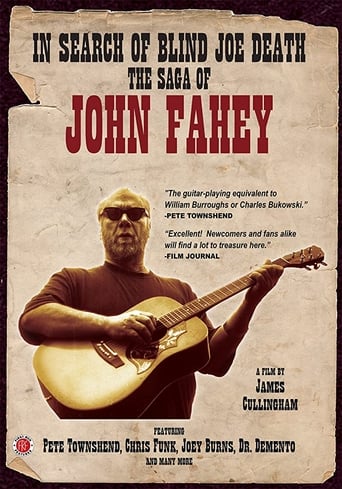

Within humanity there seems to be pattern of dystopia. Within this movie the film-maker narrowed in on John Fahey as a troubled individual. This troubled individual suffered from repressive memory syndrome which ultimately influenced his quality of life and in the end he ended up dying alone in a motel room along a highway in some desolate place in America. To me, even though his music existed, John Fahey himself described his music as, "saving his life," indicating that it was a therapy versus a creative means to an end. What does that mean? To me, it means that John Fahey was not able to transcend his mental illness. The mental illness overtook versus the power of the music. How could the ending having been written in a more positive light? Can one transcend mental illness? Is mental illness so private that it really is not meant to be analyzed and contemplated? Should we look at mental illness through the lens of a overall picture versus a narrow and pin-pointed viewpoint? As the viewer in the audience of watching this movie, I felt a deep sadness for John Fahey. This sadness was based on his life circumstances. I wish there would have been someone or something to have made his life easier whereby he would have been more understood. In the movie, John Fahey mentioned he was fearful of people and he started to fear everyone. This emotion is terrifying and it seems to have been expressed in his later works. I do not have the answers to this situation, however I do believe in transcending versus remaining paralyzed by a situation - and I also believe that life sometimes is paralyzing and sometimes life cannot be transcended based on dire medical and psychologically frozen conditions.
... View More